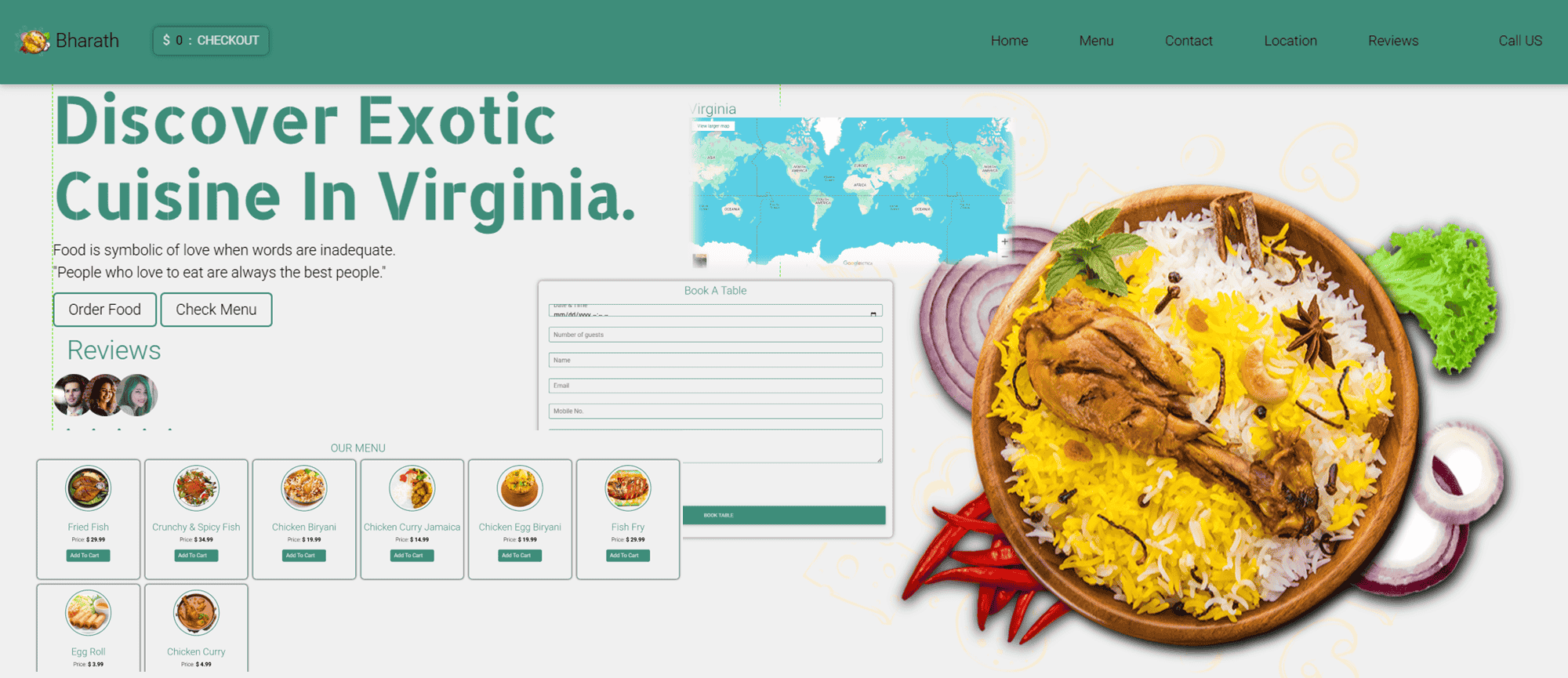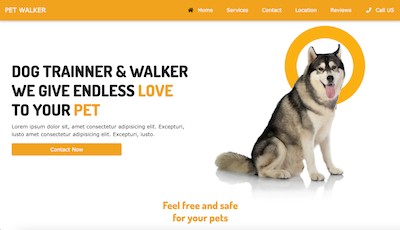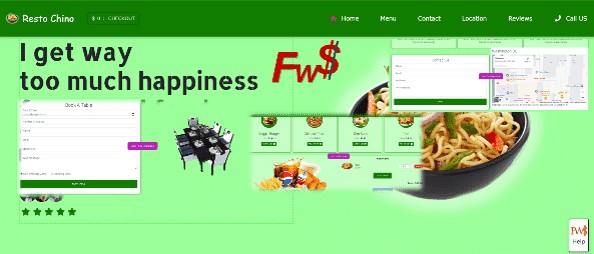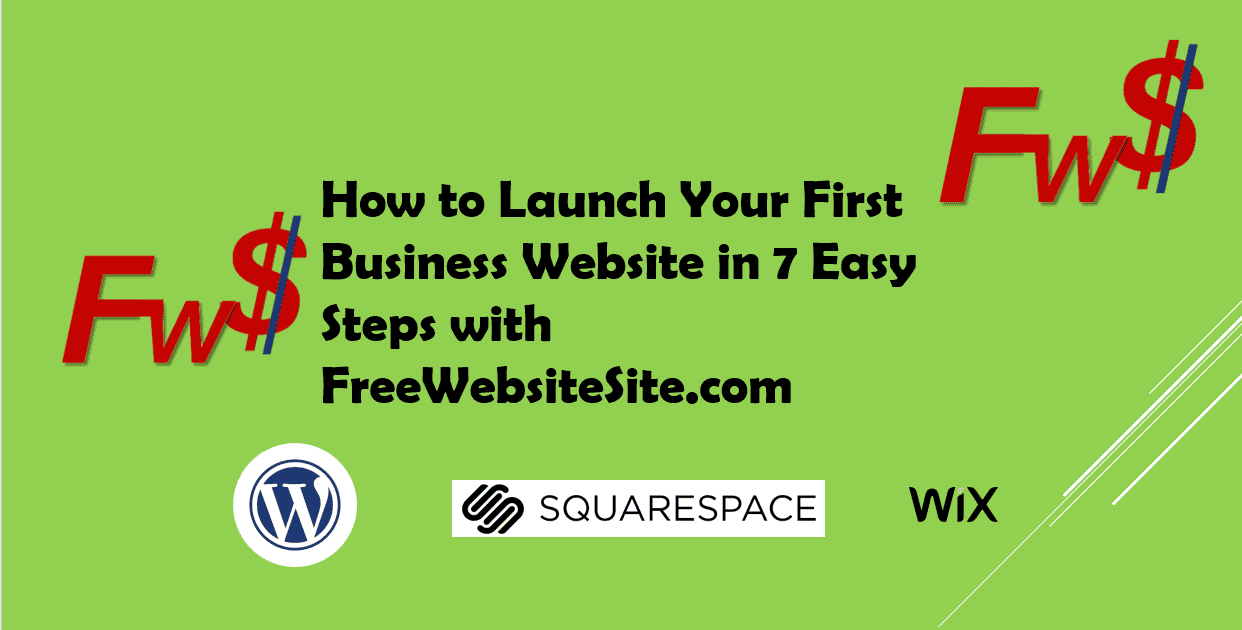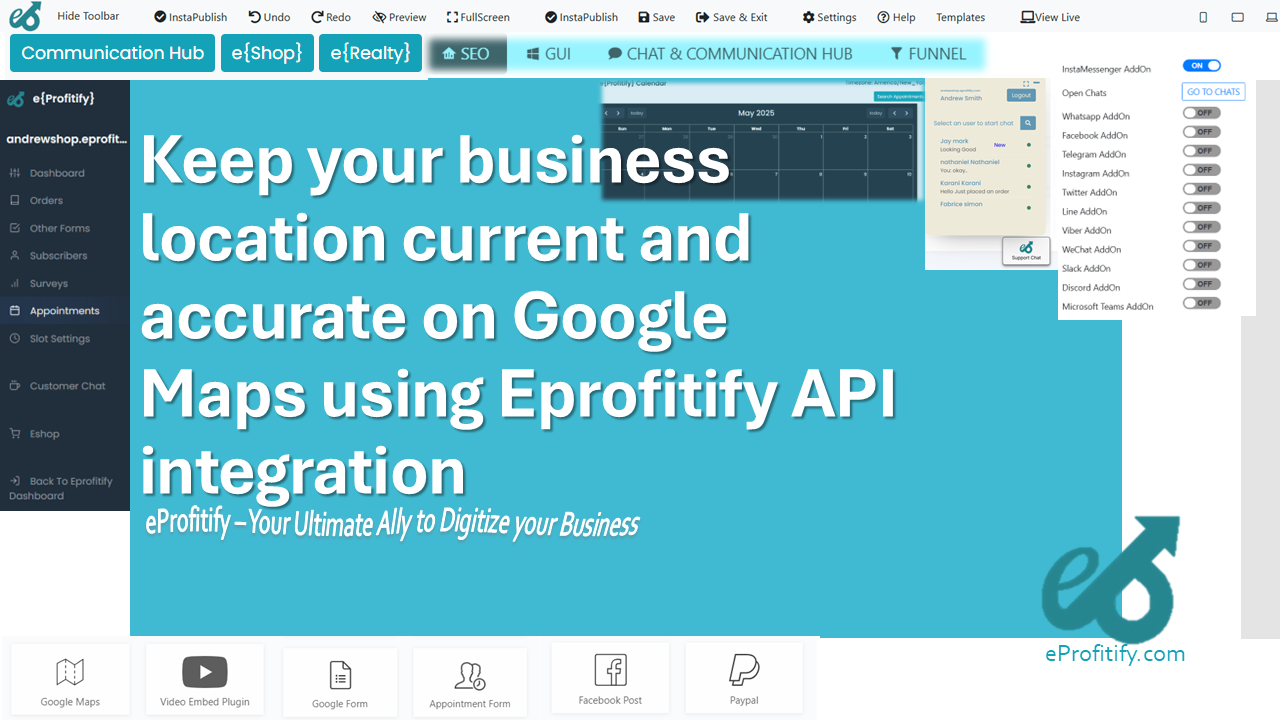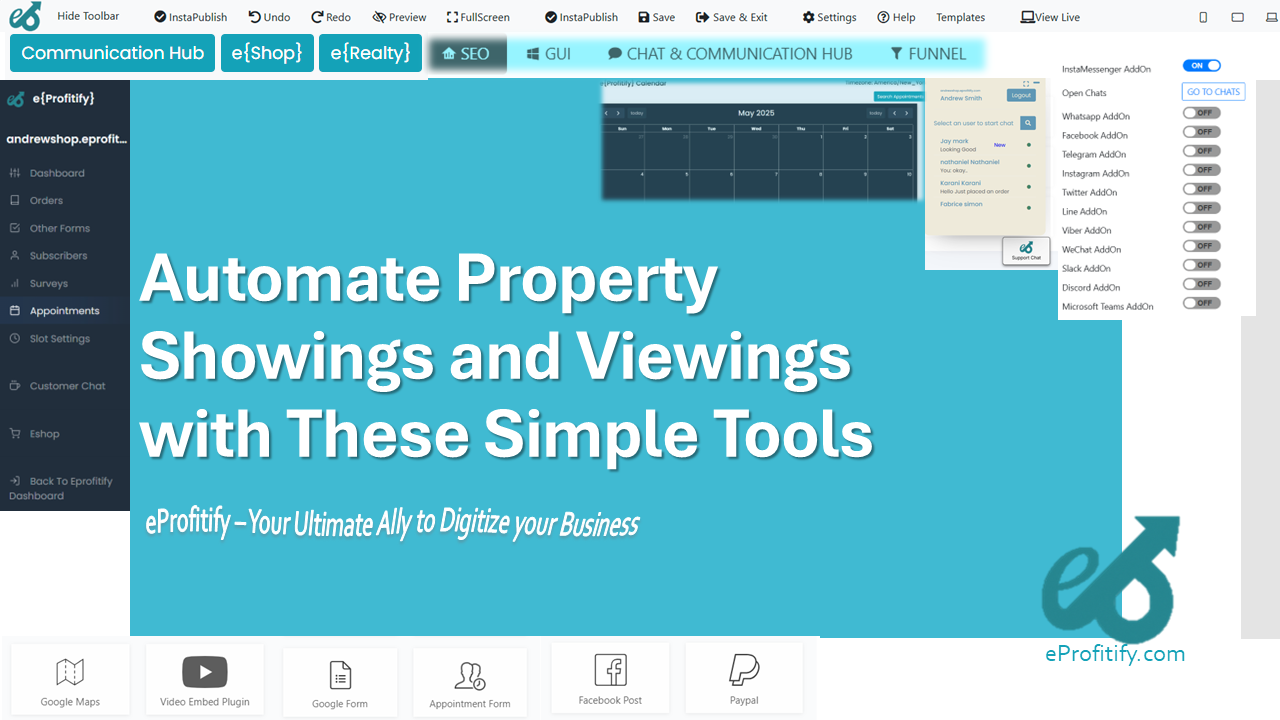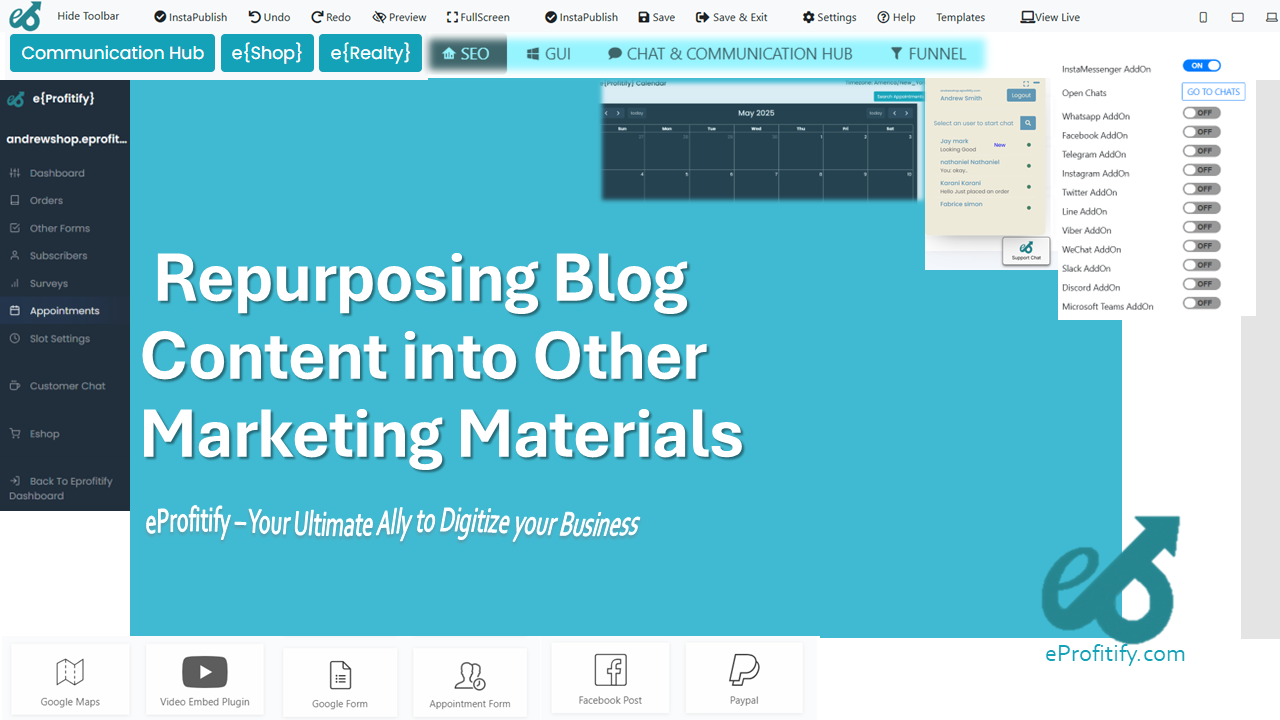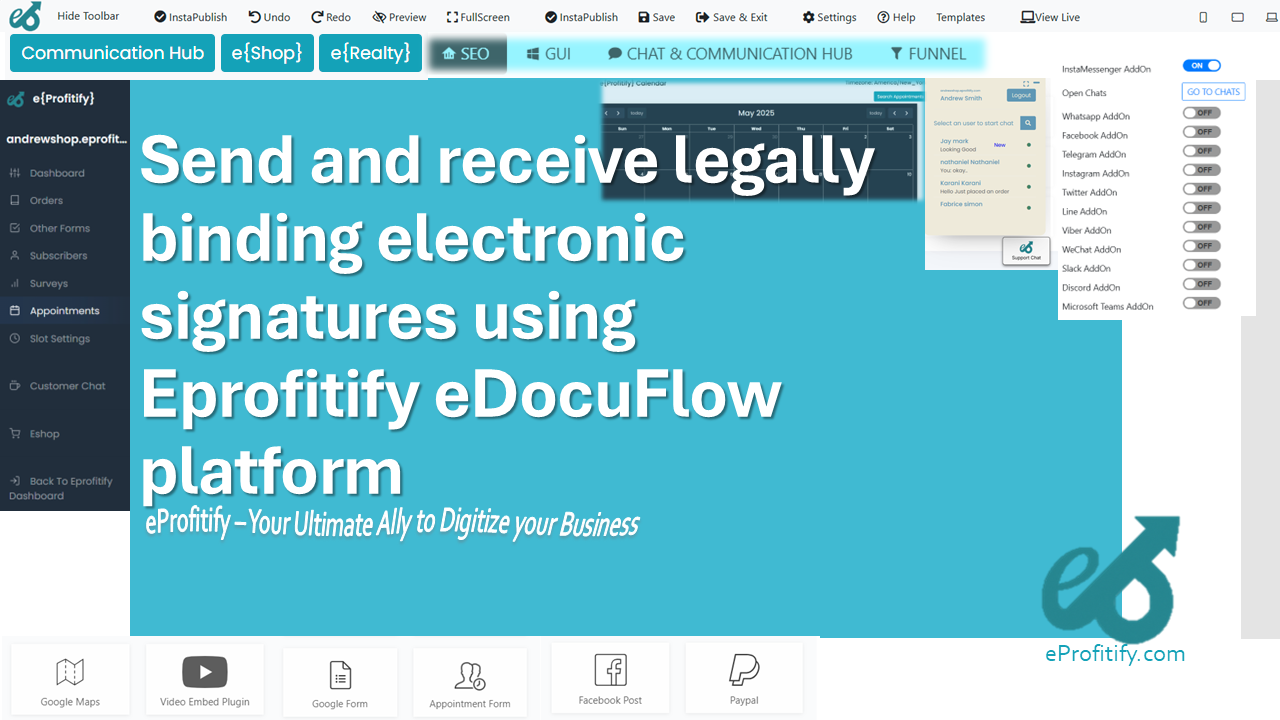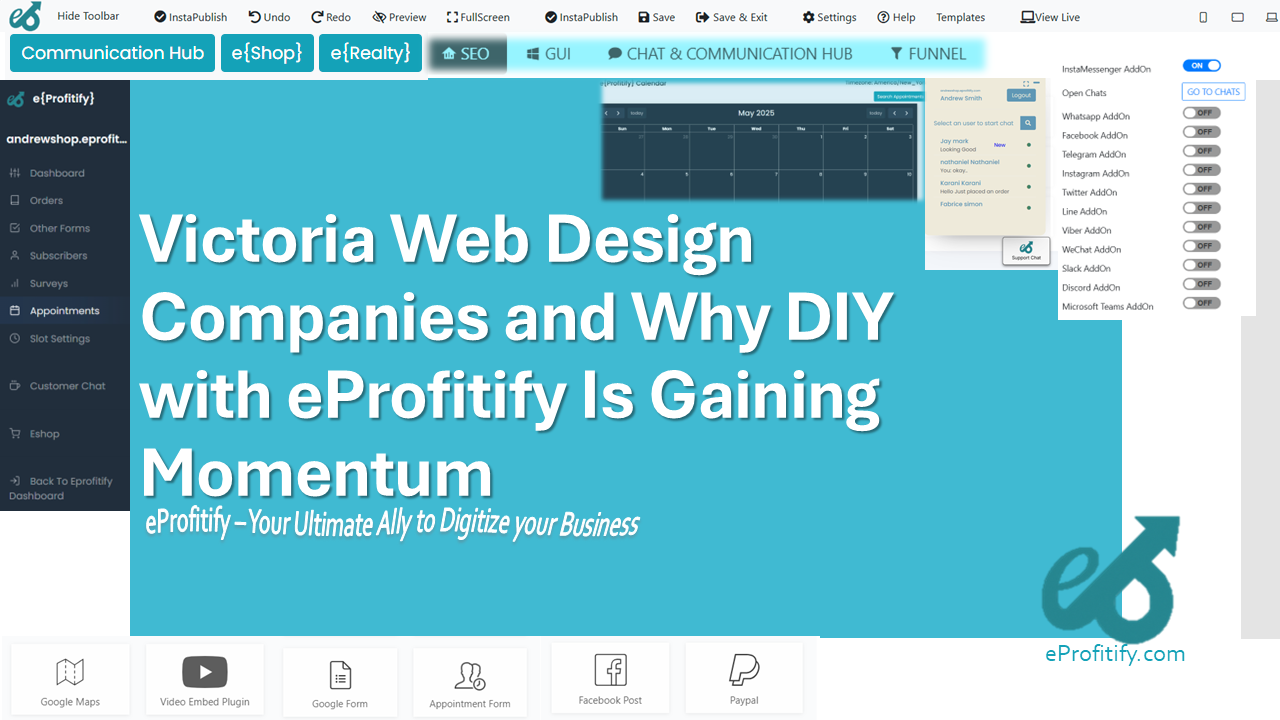Should You Include Your Target Audience in Your Business Name
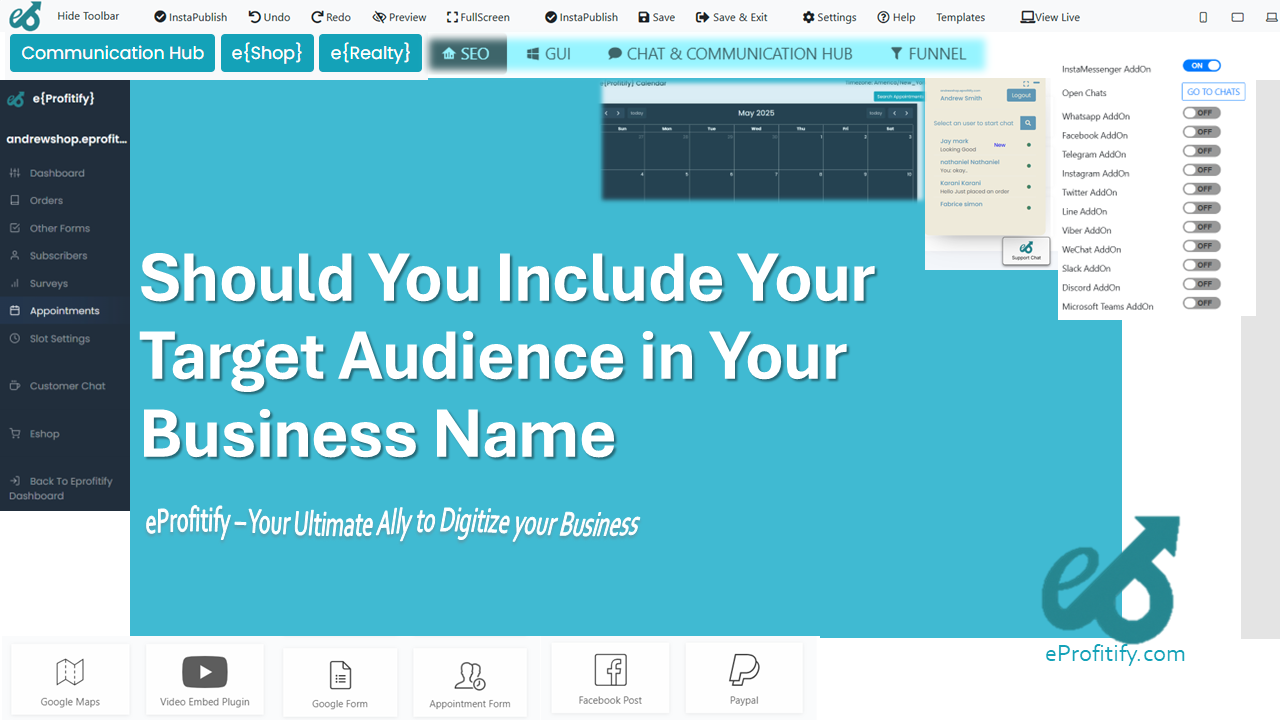
Schedule a LIVE Zoom call with an eProfitify Expert.
Choosing a business name is a critical decision that can significantly influence brand identity, customer perception, and long-term growth. One key debate entrepreneurs face is whether to include their target audience in the business name. While this strategy can offer immediate clarity and niche appeal, it may also limit scalability. In this context, platforms like eProfitify—a leading website publishing and management tool—play a pivotal role in bridging gaps between brand naming strategies and audience engagement through features like instant messaging, CRM, and ecommerce solutions. Let’s explore the pros, cons, and data-driven insights to determine when targeting your audience in your business name makes sense.
Pros of Including Your Target Audience in Your Business Name
1. Clarity and Immediate Recognition
A name that signals your audience can communicate your purpose instantly. For instance, "TeensTechTutors" leaves little ambiguity about who the service is for. According to Oberlo, 77% of consumers base purchasing decisions on a brand’s name, making clarity vital. Names like "SeniorFitnessHub" or "PetLoversBoutique" help customers self-identify as part of the target demographic, reducing marketing friction. In mobile searches, where 76% of users prioritize local intent (Google), including terms like "Austin" or "NYC" can enhance local relevance.
2. Niche Marketing Advantage
A targeted name positions your business as a specialist. For example, "MompreneurWorkshops" directly appeals to entrepreneurial mothers, fostering trust. Niche businesses often see higher customer loyalty rates, as audiences perceive them as experts. A 2021 WebFX study found that brands with audience-specific keywords in their names experienced a 42% higher click-through rate (CTR) in SEO results compared to generic names.
3. SEO Benefits
Incorporating audience keywords can improve search visibility. A name like "VeganEssentialsStore" may rank higher for "vegan products" searches. HubSpot notes that businesses using location or demographic keywords see a 33% increase in organic traffic within six months.
Cons of Including Your Target Audience in Your Business Name
1. Limiting Expansion Opportunities
A narrowly defined name can hinder diversification. For example, "BabyGearDirect" might struggle to expand into toddler products. A Demand Metric study found that 68% of companies undergoing rebrands did so to shed overly restrictive names when entering new markets.
2. Alienating Broader Audiences
Exclusivity can backfire. "GenZStyleCo" risks alienating millennials or older demographics. Nielsen research shows 43% of consumers avoid brands perceived as excluding their demographic, especially in diverse sectors like fashion or tech.
3. Overly Generic or Redundant Names
Ironically, overly specific names can become generic. "HoustonPlumbingServices" may blend into competitors’ names, reducing memorability. A Content Marketing Institute report found that 31% of small businesses with location-based names struggled to differentiate themselves nationally.
The Role of Tools Like eProfitify in Audience Engagement
Whether or not your business name includes your target audience, platforms like eProfitify empower businesses to connect with customers effectively. As a comprehensive website management tool, eProfitify offers:
- Instant Messaging: Facilitates real-time communication, addressing queries from niche or broad audiences.
- Appointment Management: Ideal for service-based businesses (e.g., “KidsDentalCare”) to streamline bookings.
- Ecommerce Integration: Supports targeted product launches with customizable storefronts.
- CRM Tools: Enables personalized marketing campaigns, increasing retention. Salesforce notes that 72% of customers expect tailored experiences, which eProfitify’s CRM delivers through data analytics.
Businesses using eProfitify report a 23% increase in customer retention by leveraging its tools to maintain engagement, regardless of their naming strategy. For instance, a generic-named brand can use eProfitify’s SEO analytics to target niche audiences through content, while a specific-named business can expand its reach via cross-selling features.
Conclusion
Including your target audience in your business name offers clarity and niche advantages but risks limiting growth. Statistics highlight the trade-offs: while audience-specific names boost CTR by 42%, 68% of rebrands aim to overcome narrow positioning. Tools like eProfitify mitigate these challenges by providing scalable solutions for audience engagement. Its CRM, ecommerce, and communication features ensure businesses can adapt to market shifts, personalize interactions, and grow beyond their initial scope. Ultimately, the decision depends on your long-term vision—but with platforms like eProfitify, even a restrictive name doesn’t have to curb your potential.
